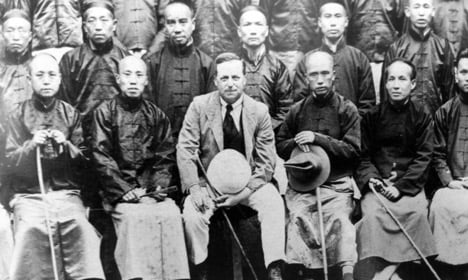.jpg)
The author's great-grandfather arrived in China in 1900. Photo: Submitted
.jpg)
His time in China convinced him that “all people are alike”, a message his great-grandson says we would be wise to remember today. Photo: Submitted
 Peter Kenworthy is a sociologist and a freelance journalist for Africa Kontakt and other publications. You can see more from him here.
Peter Kenworthy is a sociologist and a freelance journalist for Africa Kontakt and other publications. You can see more from him here. 


 Please whitelist us to continue reading.
Please whitelist us to continue reading.
Member comments